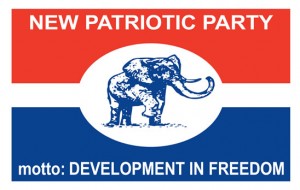Warning: Undefined array key "dirname" in /home/anapuafm/public_html/wp-content/themes/anapuafm/include/plugin/filosofo-image/filosofo-custom-image-sizes.php on line 133
Warning: Undefined array key "extension" in /home/anapuafm/public_html/wp-content/themes/anapuafm/include/plugin/filosofo-image/filosofo-custom-image-sizes.php on line 134
NPP leads with indecent expressions on radio – Report
 The New Patriotic Party (NPP) is leading, according to the latest Language Monitoring Report, as the party whose affiliates used the most indecent expressions on radio between August and September 2013.
The New Patriotic Party (NPP) is leading, according to the latest Language Monitoring Report, as the party whose affiliates used the most indecent expressions on radio between August and September 2013.
The Language Monitoring Report conducted by the Media Foundation for West Africa (MFWA) recorded 67 indecent expressions in three categories, which included insulting/offensive comments (22), unsubstantiated allegations (16) and provocative remarks (15).
The report, which was released by the MFWA at a forum for journalists in Tamale on Thursday, said the NPP recorded 38 indecent expressions, followed by the National Democratic Congress, which recorded eight, the National Democratic Party recorded five, the Progressive People’s Party recorded three and the Convention People’s Party recorded two.
The other 11 indecent expressions were made by individuals or radio stations whose affiliation was not known.
Out of a total 26 radio stations monitored across the country within the two-month period, 16 recorded indecent expressions with Accra-based Oman FM topping the list with 23 indecent expressions whiles Techiman-based Classic FM came second with 10 indecent expressions.
The forum, organized by the MFWA with support from STAR-Ghana, was to discuss the media’s coverage of the 2012 election petition adjudication, the success, challenges and the way forward for covering similar events in future.
The report said the punitive action by the Supreme Court, coupled with calls for peace by Civil Society Organizations (CSOs) and the MFWA’s Language Monitoring led to a decline in indecent expressions during the court case.
It said after the ruling, there was a sharp rise in the use of indecent expressions on the airwaves.
While acknowledging that some radio programme moderators exhibited professionalism in handling their programmes, others were cited for failing to screen indecent expressions and thus read them on air.
The report, which marked the end to MFWA’s Language Monitoring, said even though the incidence of re-broadcast of indecent expressions was very low, a few radio stations were engaged in the practice.
Ms Dora Mawutor, Programme Officer and Communications Research and Content Marketing of MFWA, commended all including the leadership of political parties and other CSOs for contributing to stem violence before, during and after the adjudication of the election petition case.
Meanwhile, Mr Kwasi Gyan-Appenteng, Member of the National Media Commission and President of the Ghana Association of Writers, lauded the media’s coverage of the election petition saying it performed its functions effectively bearing in mind the legal and political dimensions of the case.
Mr Gyan-Apenteng advocated capacity building for journalists reporting on the courts to ensure improved coverage of similar cases in future.
Dr Maurice Ampaw, President of the Legal Advocacy Foundation, who spoke on “Legal Perspectives on the Media’s Coverage of the 2012 Election Petition Adjudication and Post-Verdict Media Discussions,” said the petitioners’ challenge to the outcome of the 2012 presidential election failed because the reliefs they sought at the Supreme Court were unfair, unreasonable and inequitable.
Dr Ampaw said the petitioners should have sought for the cancellation of the election results and rather asked for a rerun of the polls at polling stations they alleged irregularities happened.




